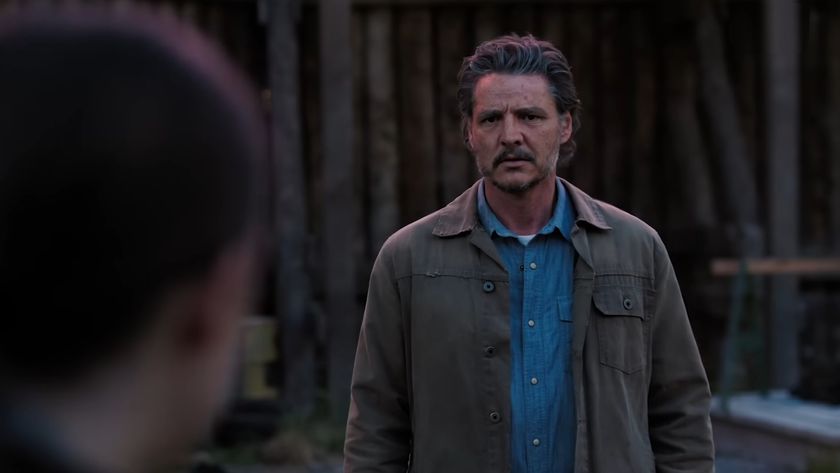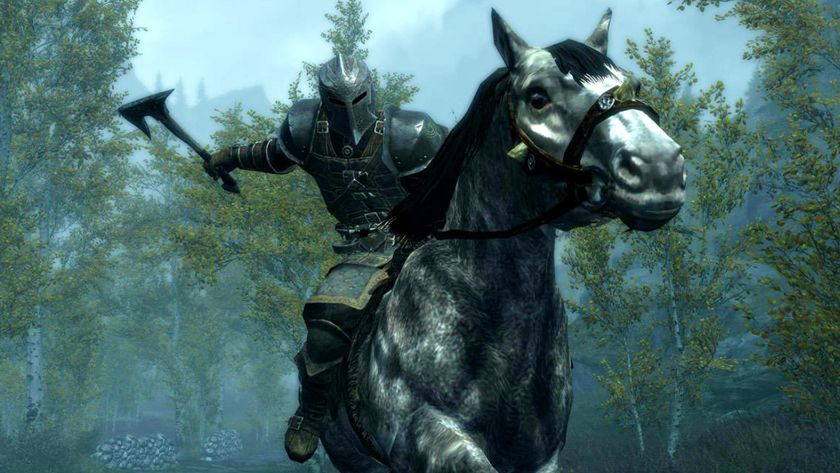The author of Barricade discusses writing in a nuclear wasteland
This is a guest blog by author Jon Wallace...
Nuclear Fiction

There's a line in a song by a favourite band of mine called The Tragically Hip which goes: "you can drop the bomb that restores some calm and then promises rebirth." That kind of sums up why Barricade has an atomic-apocalypse setting.
Well, apart from the "calm" bit…
I chose a nuclear wasteland because I wanted to recreate Britain as a hostile, lawless wilderness, a place burned free of modern structures that I could populate with freaks, mystics and mad kings. I wanted the novel's antihero, Kenstibec, to drive his armoured taxi across a landscape that allowed room for gunplay and adventure.
Barricade was bound to have such themes. I've always had a grim fascination with the idea that the world might suddenly disappear in a bright, white flash – my first ever crack at writing, in my early teens, was a book set in the aftermath of nuclear war. The main character was the last survivor, his house left miraculously untouched while the rest of the world had burned. His only companion was a walking, talking lemon. I stopped writing it because it was deeply weird, and because I faced a real problem: how do you set a story in a dying world?
Sign up to the SFX Newsletter
Get sneak previews, exclusive competitions and details of special events each month!
Still, however you slice it, writing post-nuclear worlds is a dangerous line to tread - as film and TV efforts testify: Some stories have succeeded by making the nuclear nightmare a parallel world: the hidden reality of The Matrix , the terrifying future of The Terminator , or the dreadful past of Star Trek: First Contact . Stories that have the atomic wasteland as their main setting are rarely as good (in my experience anyway), the exception being the "Cursed Earth" stories of 2000AD comics. Still, at least all of these recognise a world after nuclear war as a nightmare.
Other stories deploy nuclear weapons as little more than a useful plot device, whether a last resort that fails where human ingenuity succeeds (as in the nuclear strike on the aliens of Independence Day ) or an ultimate threat that can be neutralised simply through detonation at some loosely defined distance (like the offshore detonation in 2014's Godzilla ). Such narratives always jar with me – they marvel at the distant flash and mushroom cloud, ignoring the horrific human and environmental cost that would follow.
This year, watching the monsters of Godzilla munch on Minuteman ICBMs as if they were Chewits, I couldn't help but think: as writers we really do not take this shit seriously enough. I wondered: by writing about post-nuclear apocalypse societies, do we contribute to a myth of these weapons as rational tools of defence, rather than insane mass-extinction devices?
Well… hopefully not. I have always found realistic portrayals of nuclear exchanges, like Threads and When The Wind Blows , far too terrifying to watch, let alone emulate. Besides, that's not what I set out to do. I wanted Barricade to be a near future story with wit, style and thrills. I wanted to write about a damaged, deranged Britain, and I wanted the blank canvas nuclear desolation provides to do it.
I justified the writing of this world through the storytelling: I try throughout the book to say that the use of these horrible weapons was the act of madmen, and to show the human cost as best I can.
I suppose I also had to accept that I was partly writing a fantasy: because Britain after a nuclear strike would probably not look like this – although, if you ask me, it looks a little bit like it now.
Jon Wallace
Jon Wallace's latest novel Barricade has been described as "fast-paced, droll and disturbing" and it's available from this Thursday , 19 June. Find out more about the author at the website of his publisher Gollancz (part of Orion ) or follow him on Twitter . You can look back at Threads with us in issue 251 of SFX . Tomorrow Jon Wallace is blogging at Gav Reads.
SFX Magazine is the world's number one sci-fi, fantasy, and horror magazine published by Future PLC. Established in 1995, SFX Magazine prides itself on writing for its fans, welcoming geeks, collectors, and aficionados into its readership for over 25 years. Covering films, TV shows, books, comics, games, merch, and more, SFX Magazine is published every month. If you love it, chances are we do too and you'll find it in SFX.

The Last of Us HBO showrunner says "flat out" that "I am not going to go past the game" like Game of Thrones did with George R.R. Martin's novels

New Black Mirror season 7 trailer reveals how Will Poulter's Bandersnatch character returns to the Netflix show - with a Sonic the Hedgehog namedrop











